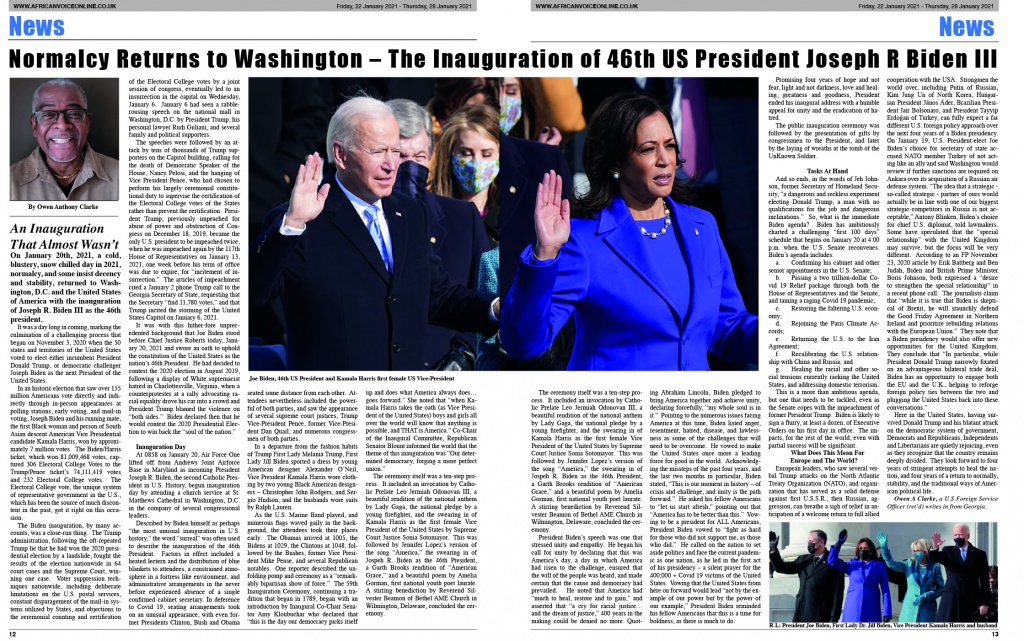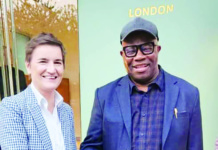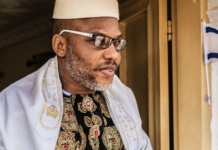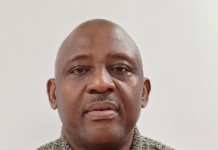
An Inauguration That Almost Wasn’t
By Owen Anthony Clarke – On January 20th, 2021, a cold, blustery, snow chilled day in 2021, normalcy, and some insist decency and stability, returned to Washington, D.C. and the United States of America with the inauguration of Joseph R. Biden III as the 46th president.
It was a day long in coming, marking the culmination of a challenging process that began on November 3, 2020 when the 50 states and territories of the United States voted to elect either incumbent President Donald Trump, or democratic challenger Joseph Biden as the next President of the United States.
In an historic election that saw over 155 million Americans vote directly and indirectly through in-person appearances at polling stations, early voting, and mail-in voting, Joseph Biden and his running mate, the first Black woman and person of South Asian descent American Vice Presidential candidate Kamala Harris, won by approximately 7 million votes. The Biden/Harris ticket, which won 81,009,468 votes, captured 306 Electoral College Votes to the Trump/Pence ticket’s 74,111,419 votes and 232 Electoral College votes. The Electoral College vote, the unique system of representative government in the U.S., which has been the source of much discontent in the past, got it right on this occasion.
The Biden inauguration, by many accounts, was a close-run thing. The Trump administration, following the oft-repeated Trump lie that he had won the 2020 presidential election by a landslide, fought the results of the election nationwide in 64 court cases and the Supreme Court, winning one case. Voter suppression techniques nationwide, including deliberate limitations on the U.S. postal services, constant disparagement of the mail-in systems utilized by States, and objections to the ceremonial counting and certification of the Electoral College votes by a joint session of congress, eventually led to an insurrection in the capital on Wednesday, January 6. January 6 had seen a rabble-rousing speech on the national mall in Washington, D.C. by President Trump, his personal lawyer Rudi Guliani, and several family and political supporters.
The speeches were followed by an attack by tens of thousands of Trump supporters on the Capitol building, calling for the death of Democratic Speaker of the House, Nancy Pelosi, and the hanging of Vice President Pence, who had chosen to perform his largely ceremonial constitutional duty to supervise the certification of the Electoral College votes of the States rather than prevent the certification. President Trump, previously impeached for abuse of power and obstruction of Congress on December 18, 2019, became the only U.S. president to be impeached twice, when he was impeached again by the 117th House of Representatives on January 13, 2021, one week before his term of office was due to expire, for “incitement of insurrection.” The articles of impeachment cited a January 2 phone Trump call to the Georgia Secretary of State, requesting that the Secretary “find 11,780 votes,” and that Trump incited the storming of the United States Capitol on January 6, 2021.
It was with this hither-fore unprecedented background that Joe Biden stood before Chief Justice Roberts today, January 20, 2021 and swore an oath to uphold the constitution of the United States as the nation’s 46th President. He had decided to contest the 2020 election in August 2019, following a display of White supremacist hatred in Charlottesville, Virginia, when a counterprotester at a rally advocating racial equality drove his car into a crowd and President Trump blamed the violence on “both sides.” Biden declared then that he would contest the 2020 Presidential Election to win back the “soul of the nation.”
Inauguration Day
At 0858 on January 20, Air Force One lifted off from Andrews Joint Airforce Base in Maryland as incoming President Joseph R. Biden, the second Catholic President in U.S. History, begun inauguration day by attending a church service at St. Matthews Cathedral in Washington, D.C. in the company of several congressional leaders.
Described by Biden himself as perhaps “the most unusual inauguration in U.S. history,” the word “surreal” was often used to describe the inauguration of the 46th President. Factors in effect included a heated lectern and the distribution of blue blankets to attendees, a constrained atmosphere in a fortress like environment, and administrative arrangements in the never before experienced absence of a single confirmed cabinet secretary. In deference to Covid 19, seating arrangements took on an unusual appearance, with even former Presidents Clinton, Bush and Obama seated some distance from each other. Attendees nevertheless included the powerful of both parties, and saw the appearance of several supreme court justices, Trump Vice-President Pence, former Vice-President Dan Quail, and numerous congressmen of both parties.
In a departure from the fashion habits of Trump First Lady Melania Trump, First Lady Jill Biden sported a dress by young American designer Alexander O’Neil, Vice President Kamala Harris wore clothing by two young Black American designers – Christopher John Rodgers, and Sergio Hudson, and the husbands wore suits by Ralph Lauren.
As the U.S. Marine Band played, and numerous flags waved gaily in the background, the attendees took their places early. The Obamas arrived at 1005, the Bidens at 1029, the Clintons at 1048, followed by the Bushes, former Vice President Mike Pense, and several Republican notables. One reporter described the unfolding pomp and ceremony as a “remarkably bipartisan show of force.” The 59th Inauguration Ceremony, continuing a tradition that began in 1789, began with an introduction by Inaugural Co-Chair Senator Amy Kloubuchar who declared that “this is the day our democracy picks itself up and does what America always does… goes forward.” She noted that “when Kamala Harris takes the oath (as Vice President of the United States) boys and girls all over the world will know that anything is possible, and THAT is America.” Co-Chair of the Inaugural Committee, Republican Senator Blount informed the world that the theme of this inauguration was “Our determined democracy, forging a more perfect union.”
The ceremony itself was a ten-step process. It included an invocation by Catholic Prelate Leo Jermiah Odonovan III, a beautiful rendition of the national anthem by Lady Gaga, the national pledge by a young firefighter, and the swearing in of Kamala Harris as the first female Vice President of the United States by Supreme Court Justice Sonia Sotomayor. This was followed by Jennifer Lopez’s version of the song “America,” the swearing in of Jospeh R. Biden as the 46th President, a Garth Brooks rendition of “American Grace,” and a beautiful poem by Amelia Gorman, first national youth poet laurate. A stirring benediction by Reverend Silvester Beamon of Bethel AME Church in Wilmington, Delaware, concluded the ceremony.
President Biden’s speech was one that stressed unity and empathy. He began his call for unity by declaring that this was America’s day, a day in which America had risen to the challenge, ensured that the will of the people was heard, and made certain that the cause and democracy had prevailed. He noted that America had “much to heal, restore and to gain,” and asserted that “a cry for racial justice…and the dream of justice,” 400 years in the making could be denied no more. Quoting Abraham Lincoln, Biden pledged to bring America together and achieve unity, declaring forcefully, “my whole soul is in it.” Pointing to the numerous issues facing America at this time, Biden listed anger, resentment, hatred, disease, and lawlessness as some of the challenges that will need to be overcome. He vowed to make the United States once more a leading force for good in the world. Acknowledging the missteps of the past four years, and the last two months in particular, Biden stated, “This is our moment in history – of crisis and challenge, and unity is the path forward.” He asked his fellow Americans to “let us start afresh,” pointing out that “America has to be better than this.” Vowing to be a president for ALL Americans, President Biden vowed to “fight as hard for those who did not support me, as those who did.” He called on the nation to set aside politics and face the current pandemic as one nation, as he led in the first act of his presidency – a silent prayer for the 400,000 + Covid 19 victims of the United States. Vowing that the United States from here on forward would lead “not by the example of our power but by the power of our example,” President Biden reminded his fellow Americans that this is a time for boldness, as there is much to do. Promising four years of hope and not fear, light and not darkness, love and healing, greatness and goodness, President ended his inaugural address with a humble appeal for unity and the eradication of hatred.
The public inauguration ceremony was followed by the presentation of gifts by congressmen to the President, and later by the laying of wreaths at the tomb of the UnKnown Soldier.
Tasks At Hand
And so ends, in the words of Jeh Johnson, former Secretary of Homeland Security, “a dangerous and reckless experiment electing Donald Trump, a man with no qualifications for the job and dangerous inclinations.” So, what is the immediate Biden agenda? Biden has ambitiously charted a challenging “first 100 days” schedule that begins on January 20 at 4:00 p.m. when the U.S. Senate reconvenes. Biden’s agenda includes:
a. Confirming his cabinet and other senior appointments in the U.S. Senate;
b. Passing a two trillion-dollar Covid 19 Relief package through both the House of Representatives and the Senate, and taming a raging Covid 19 pandemic;
c. Restoring the faltering U.S. economy;
d. Rejoining the Paris Climate Accords;
e. Returning the U.S. to the Iran Agreement;
f. Recalibrating the U.S. relationship with China and Russia; and
g. Healing the racial and other social tensions currently racking the United States, and addressing domestic terrorism.
This is a more than ambitious agenda, but one that needs to be tackled, even as the Senate copes with the impeachment of former President Trump. Biden is likely to sign a flurry, at least a dozen, of Executive Orders on his first day in office. The impacts, for the rest of the world, even with partial success will be significant.
What Does This Mean For Europe and The World?
European leaders, who saw several verbal Trump attacks on the North Atlantic Treaty Organization (NATO), and organization that has served as a solid defense against first U.S.S.R., then Russian, aggression, can breathe a sigh of relief in anticipation of a welcome return to full allied cooperation with the USA. Strongmen the world over, including Putin of Russian, Kim Jung Un of North Korea, Hungarian President János Áder, Brazilian President Jair Bolsonaro, and President Tayyip Erdoğan of Turkey, can fully expect a far different U.S. foreign policy approach over the next four years of a Biden presidency. On January 19, U.S. President-elect Joe Biden’s choice for secretary of state accused NATO member Turkey of not acting like an ally and said Washington would review if further sanctions are required on Ankara over its acquisition of a Russian air defense system. “The idea that a strategic – so-called strategic – partner of ours would actually be in line with one of our biggest strategic competitors in Russia is not acceptable,” Antony Blinken, Biden’s choice for chief U.S. diplomat, told lawmakers. Some have speculated that the “special relationship” with the United Kingdom may survive, but the focus will be very different. According to an FP November 23, 2020 article by Erik Battberg and Ben Judah, Biden and British Prime Minister Boris Johnson, both expressed a “desire to strengthen the special relationship” in a recent phone call. The journalists claim that “while it is true that Biden is skeptical of Brexit, he will staunchly defend the Good Friday Agreement in Northern Ireland and prioritize rebuilding relations with the European Union.” They note that a Biden presidency would also offer new opportunities for the United Kingdom. They conclude that “In particular, while President Donald Trump narrowly fixated on an advantageous bilateral trade deal, Biden has an opportunity to engage both the EU and the U.K., helping to reforge foreign policy ties between the two and plugging the United States back into these conversations.”
Here in the United States, having survived Donald Trump and his blatant attack on the democratic system of government, Democrats and Republicans, Independents and Libertarians are quietly rejoicing, even as they recognize that the country remains deeply divided. They look forward to four years of stringent attempts to heal the nation, and four years of a return to normally, stability, and the traditional ways of American political life.
Owen A Clarke, a U.S Foreign Service Officer (ret’d) writes in from Georgia.
Kindly follow us on twitter:@AfricanVoice2











